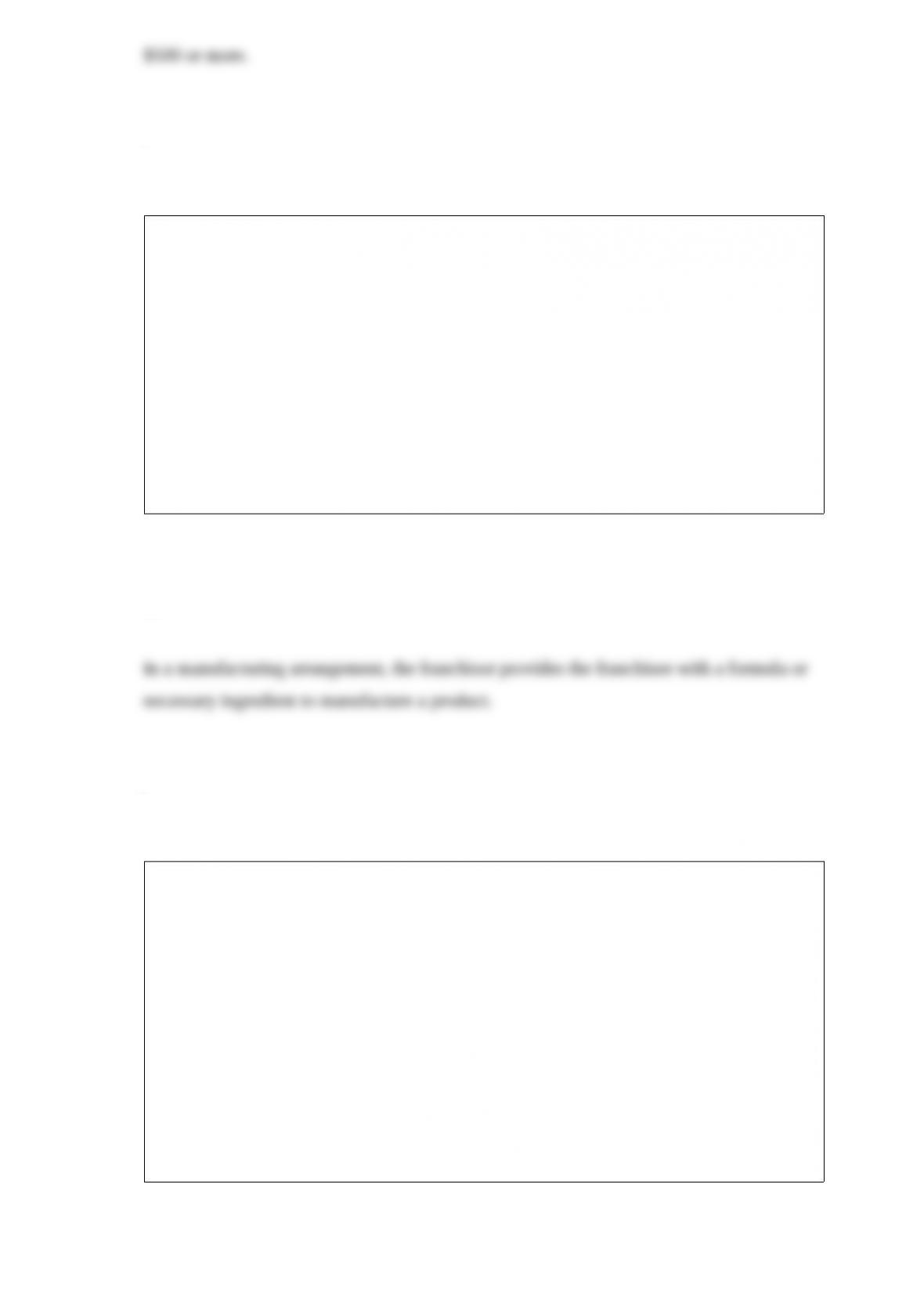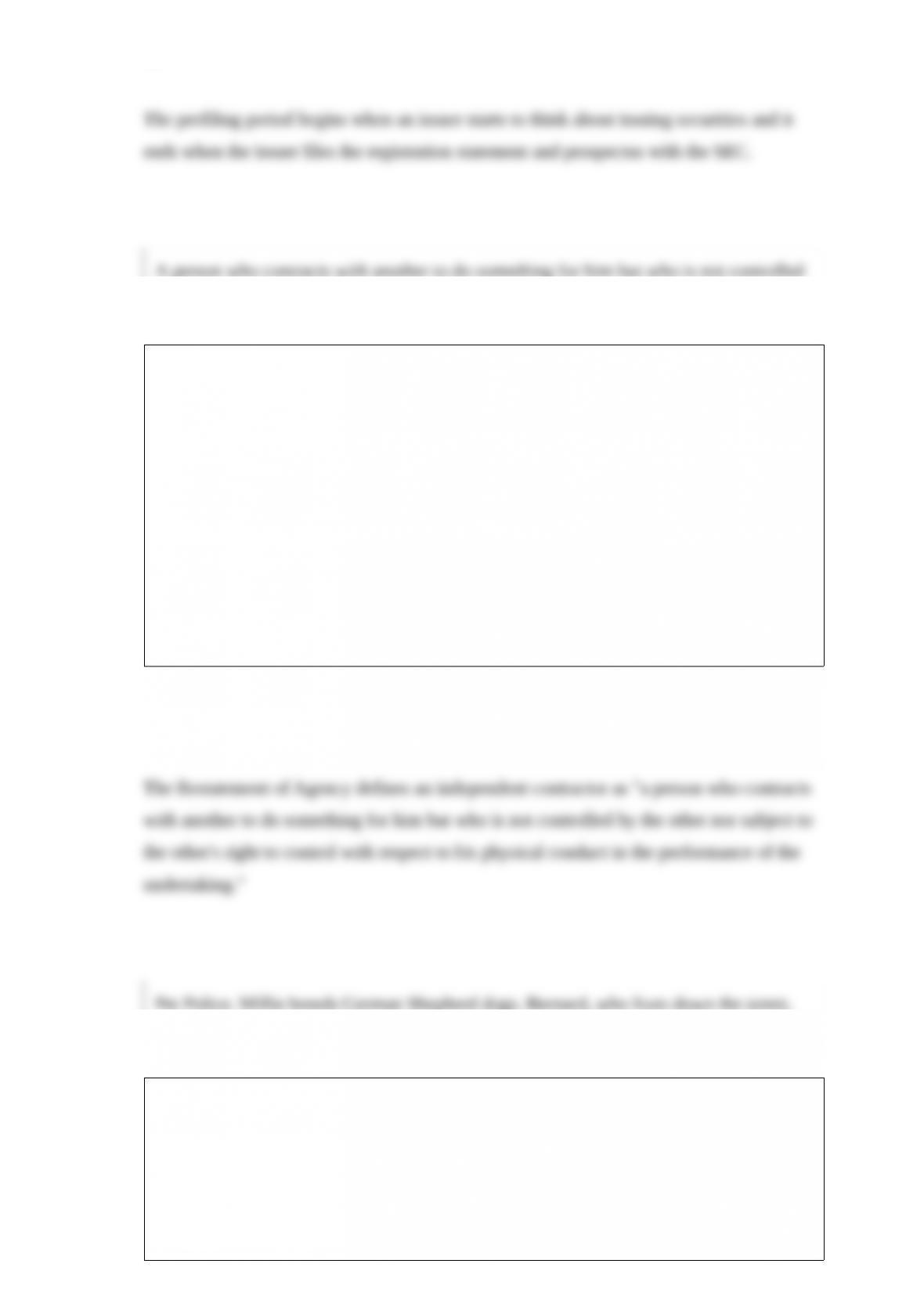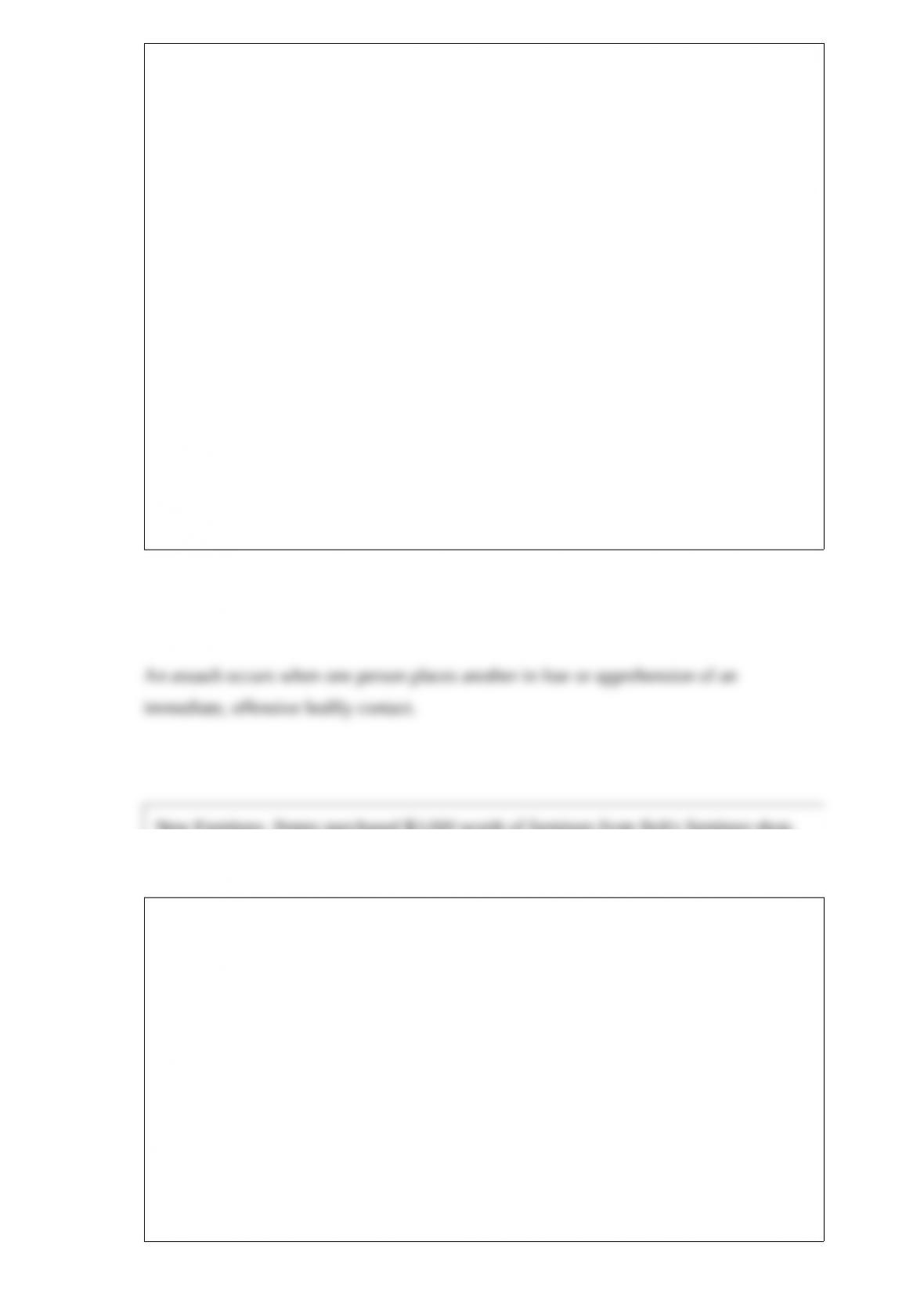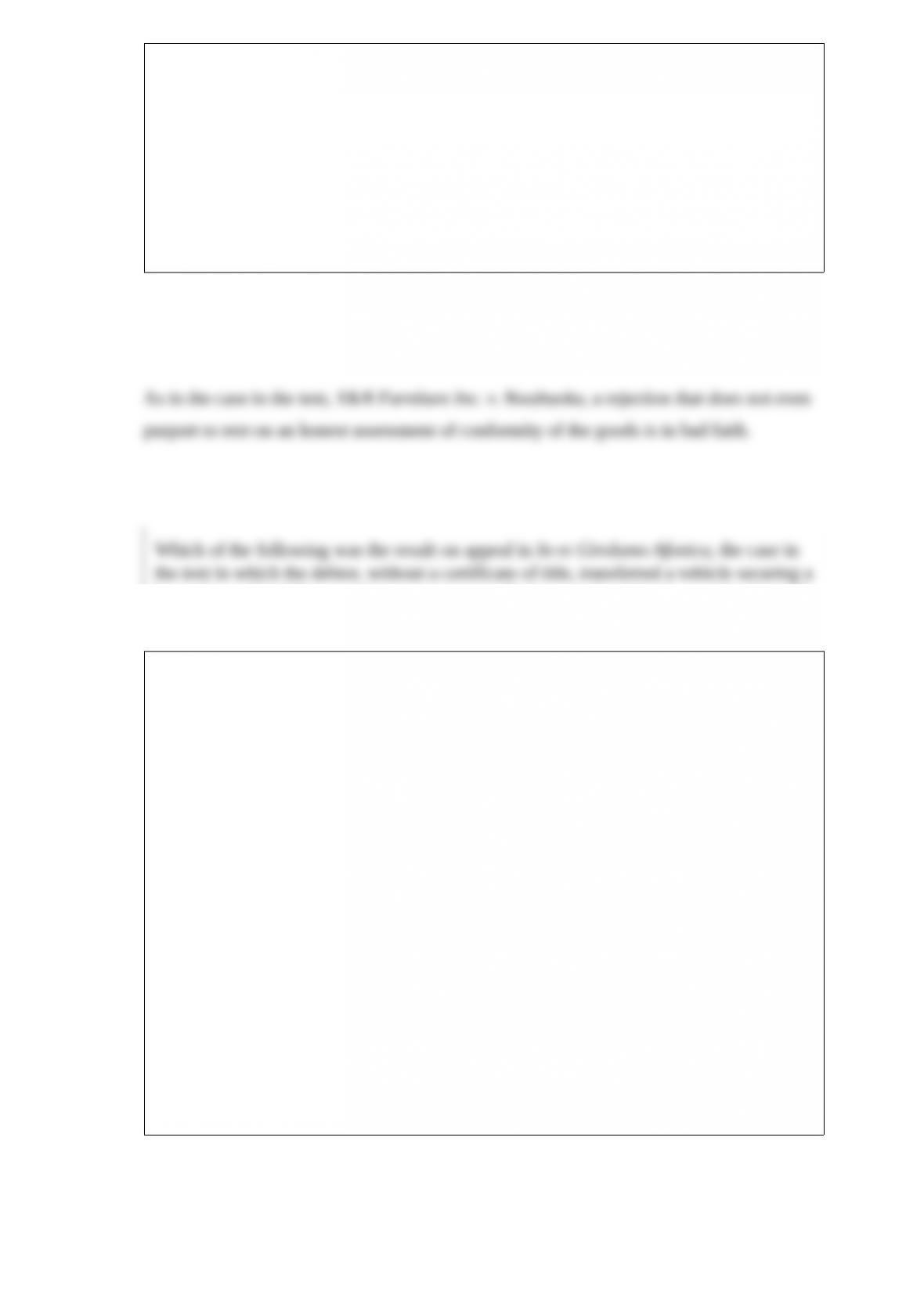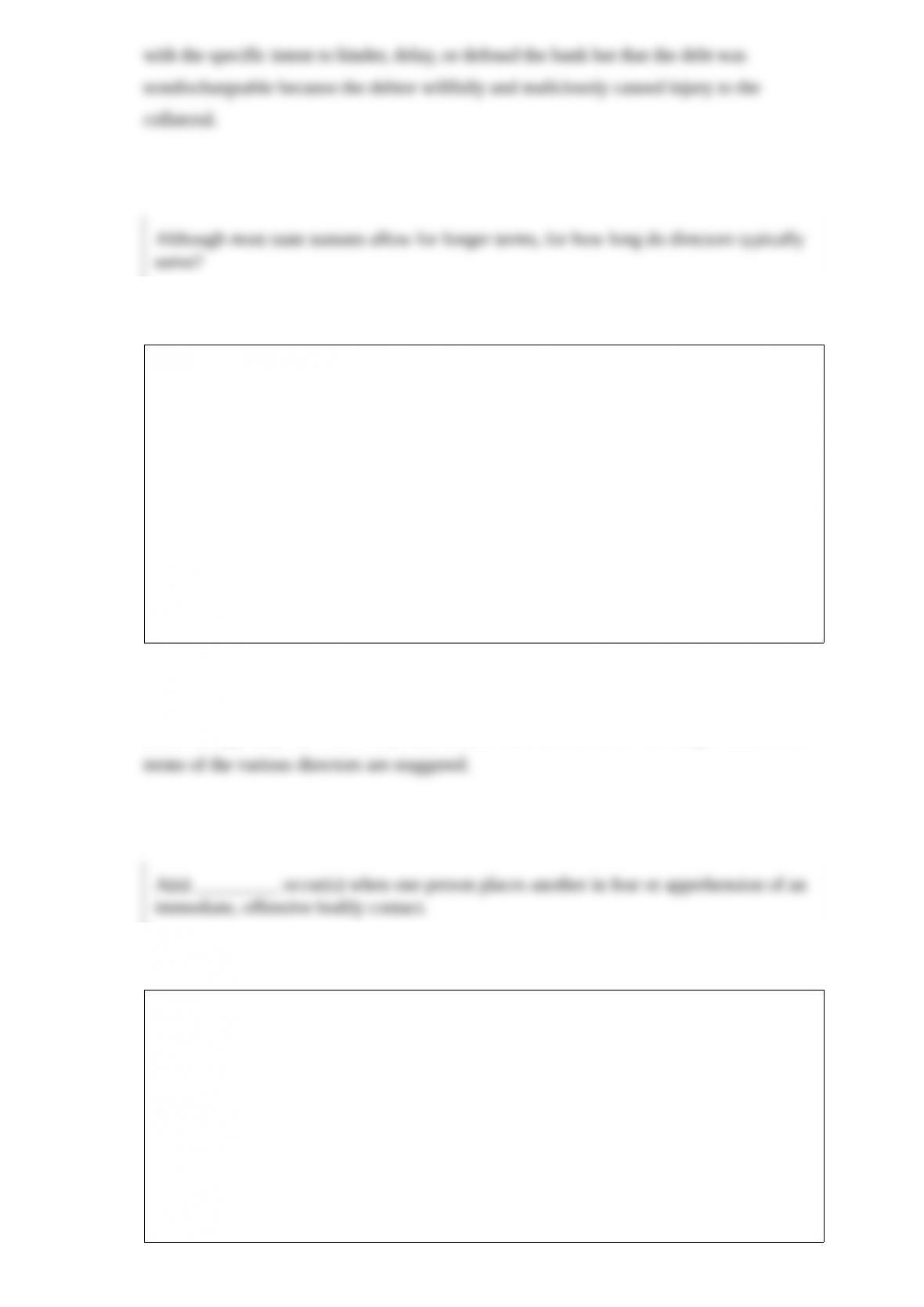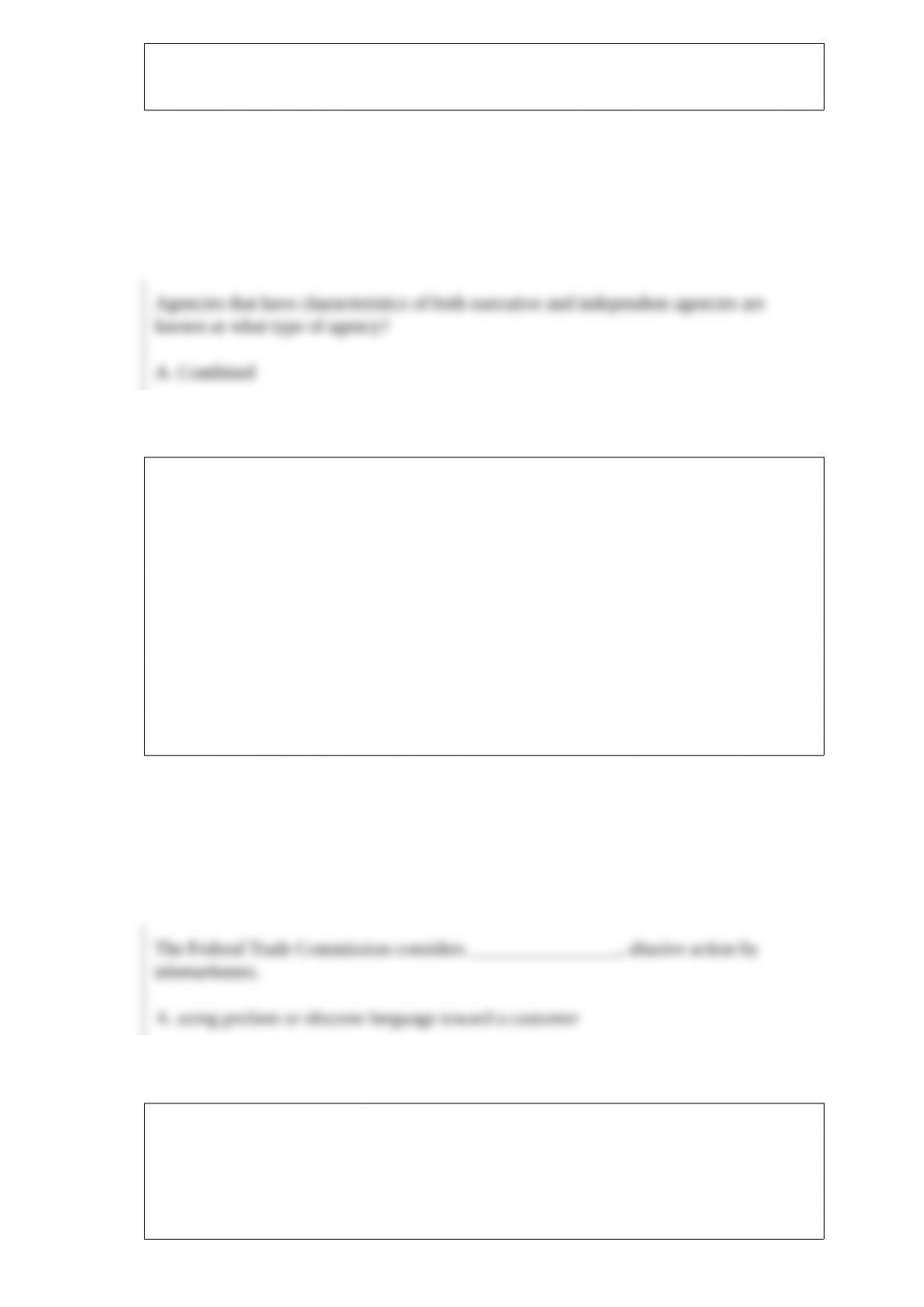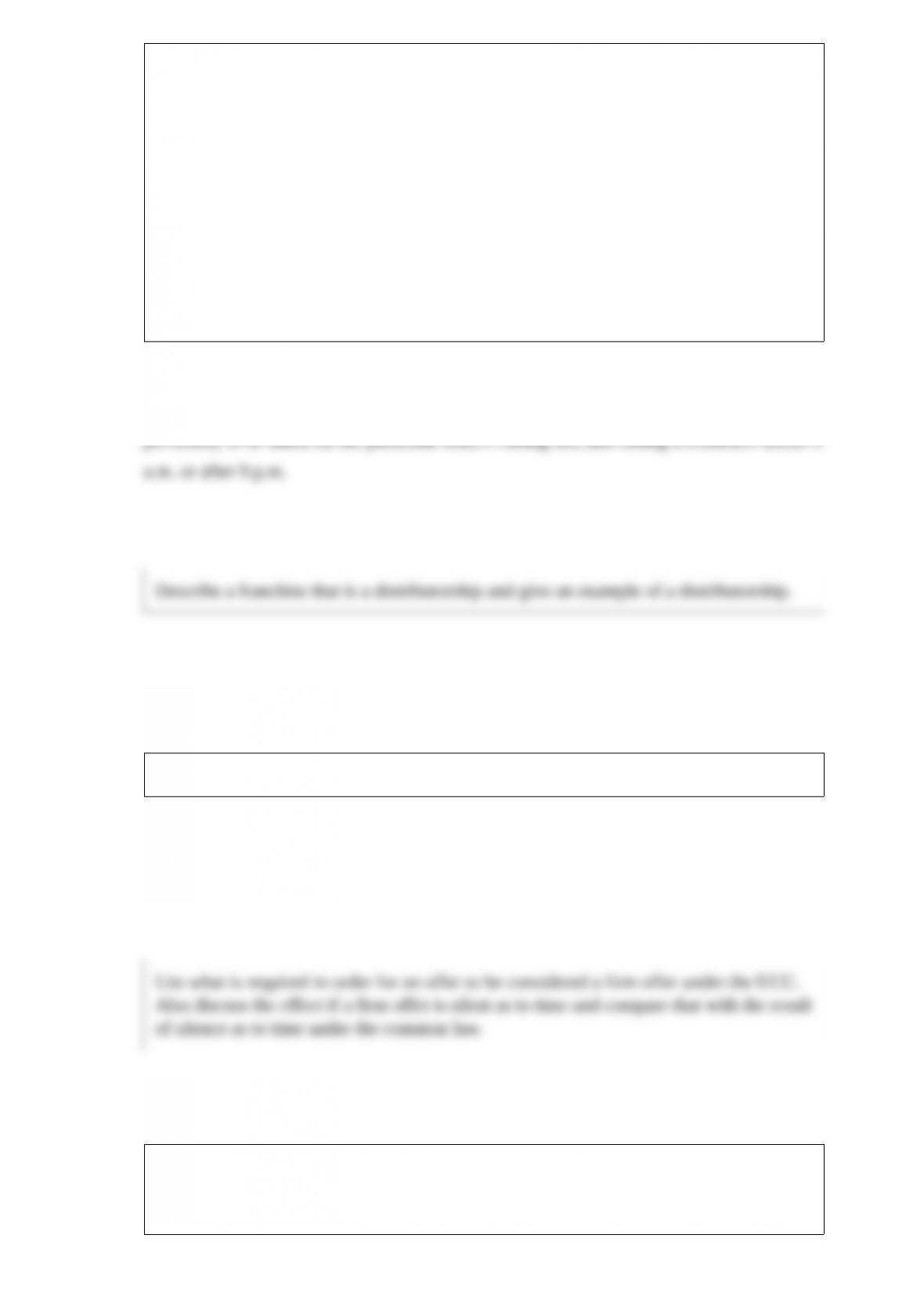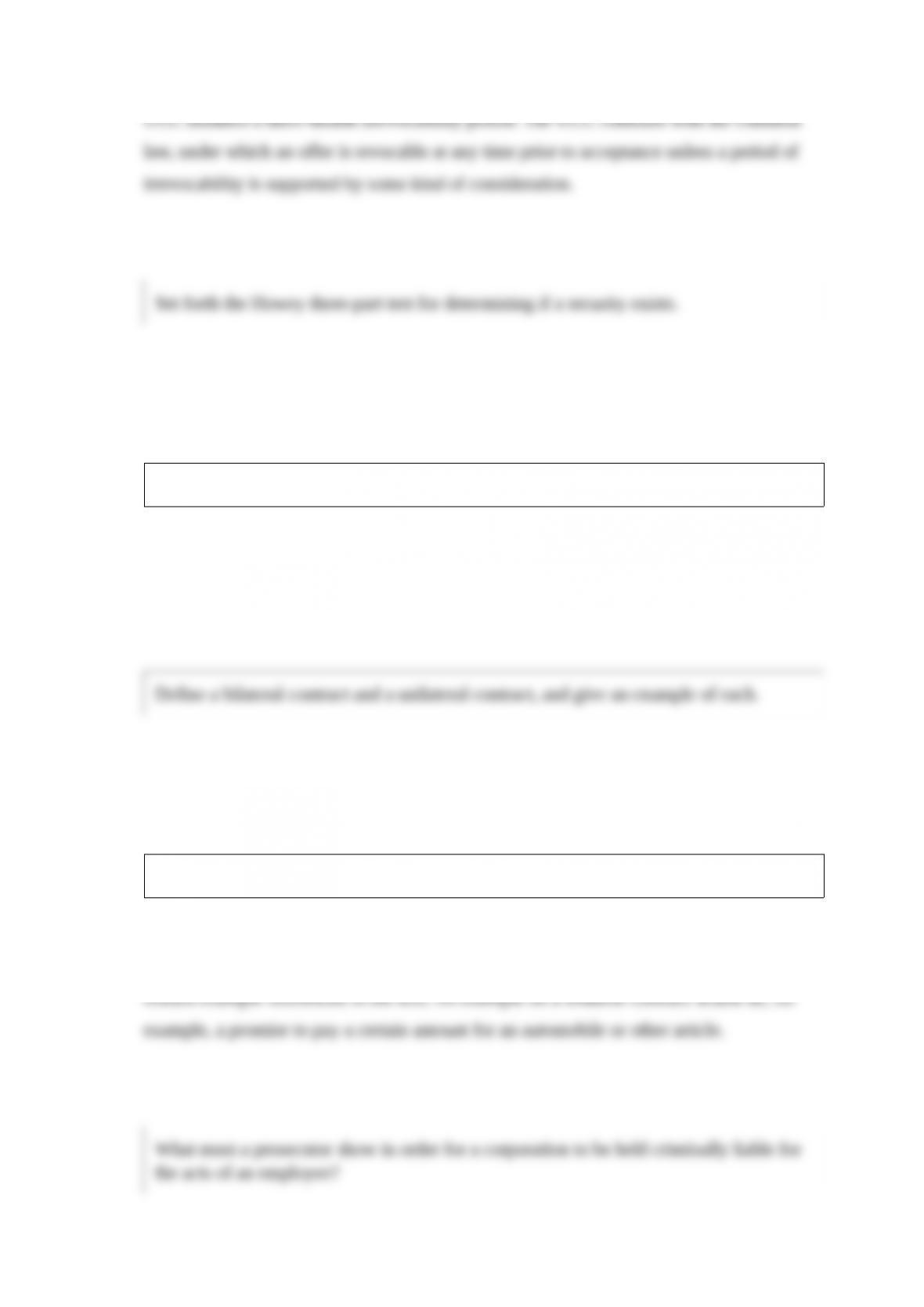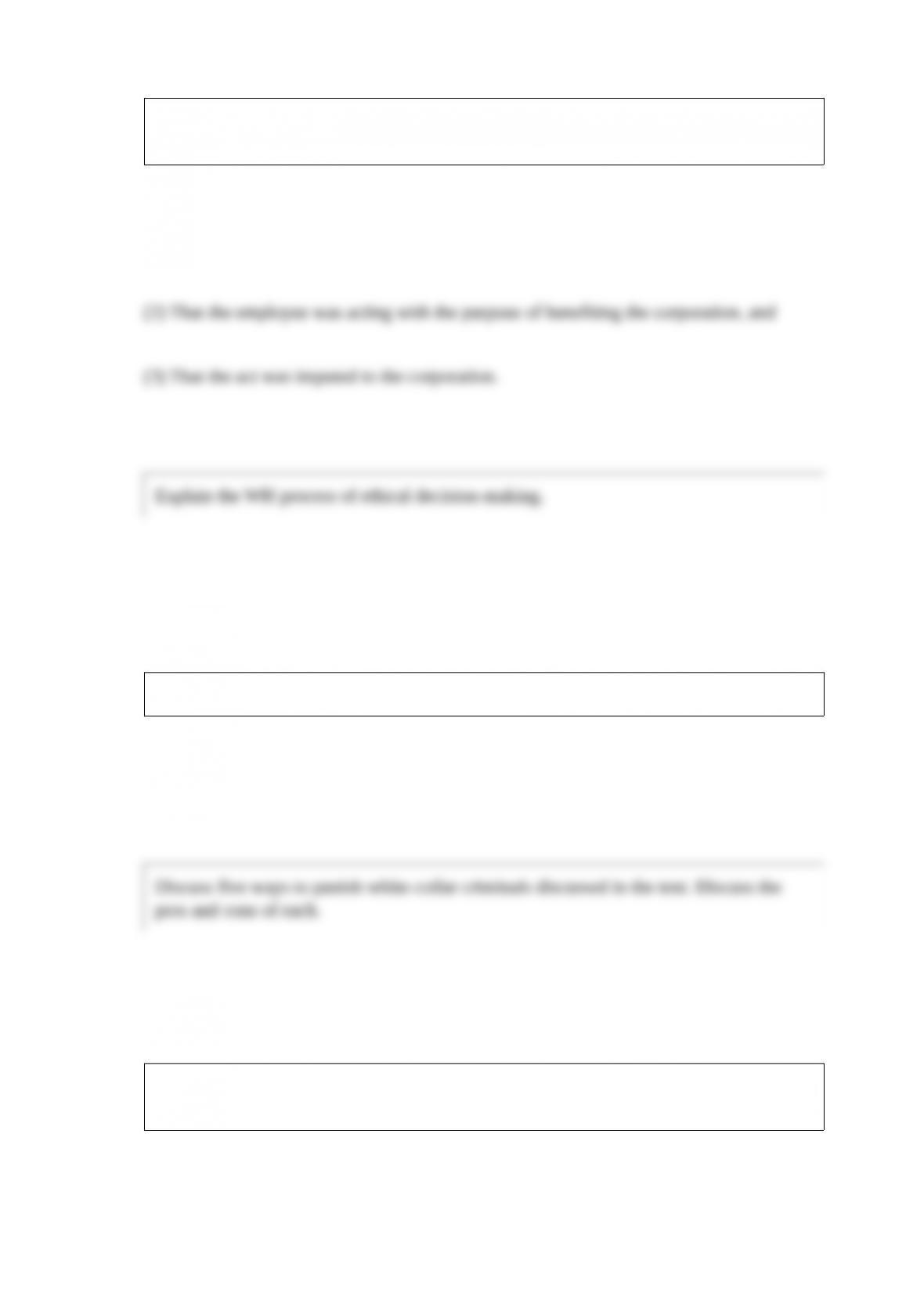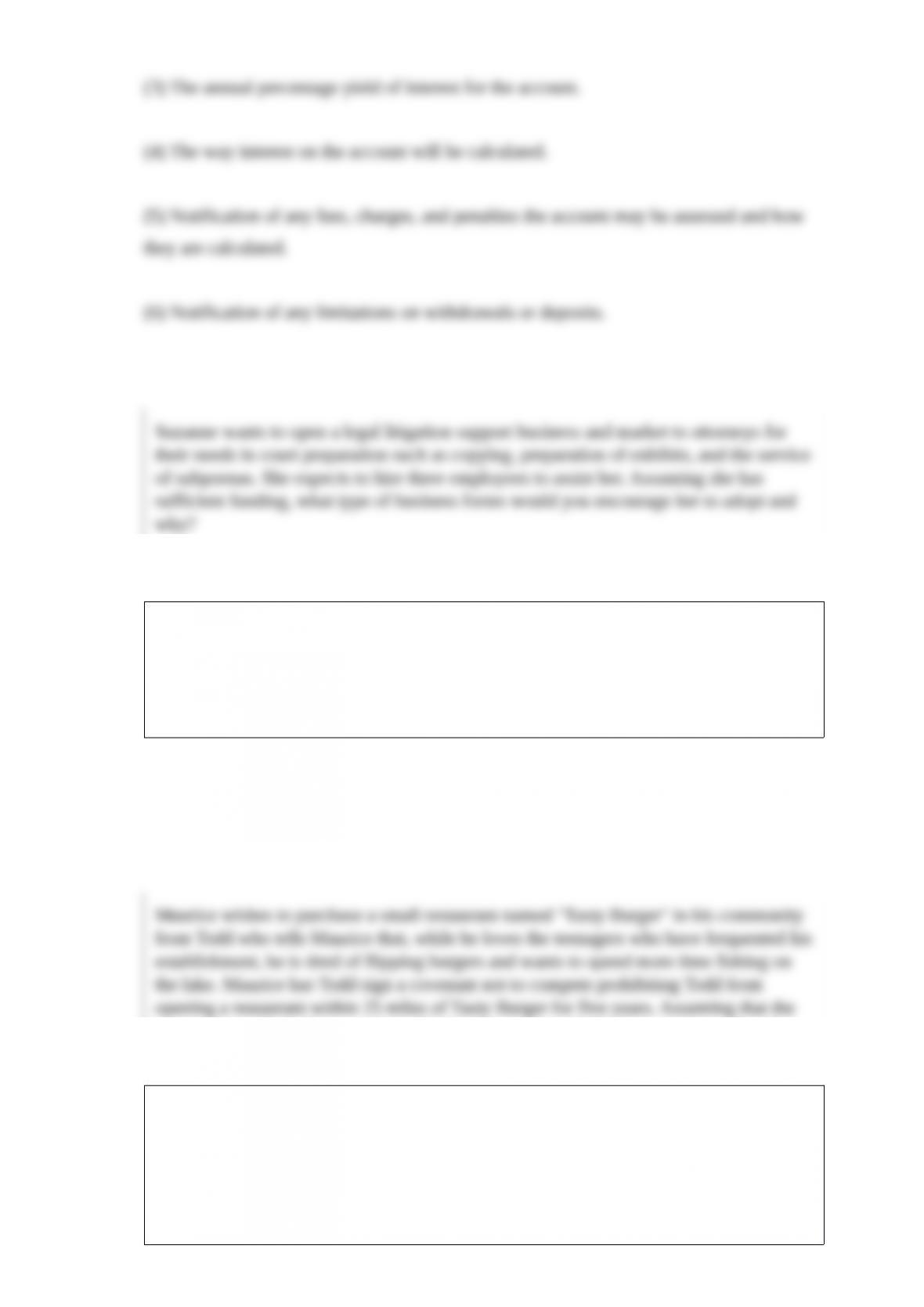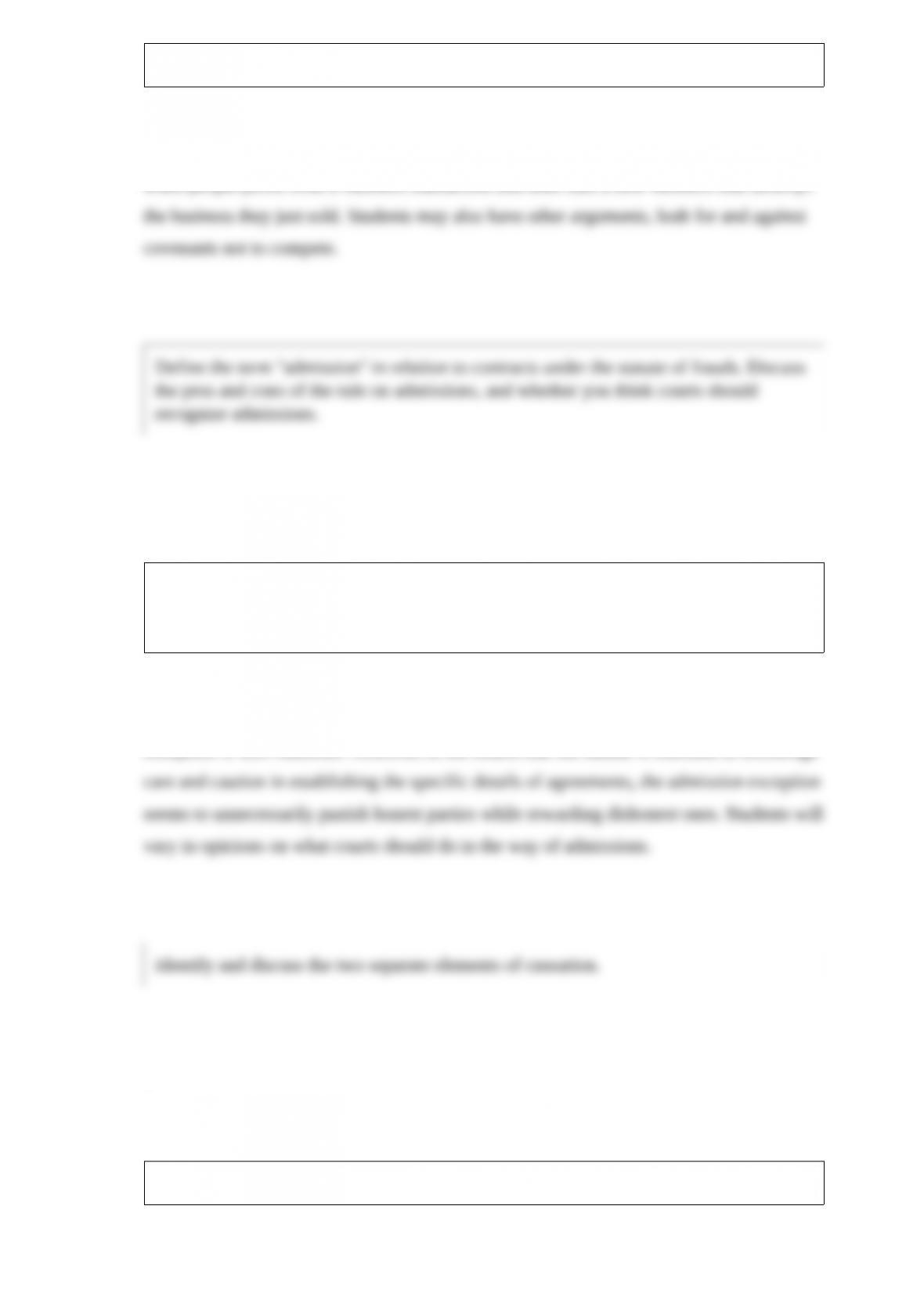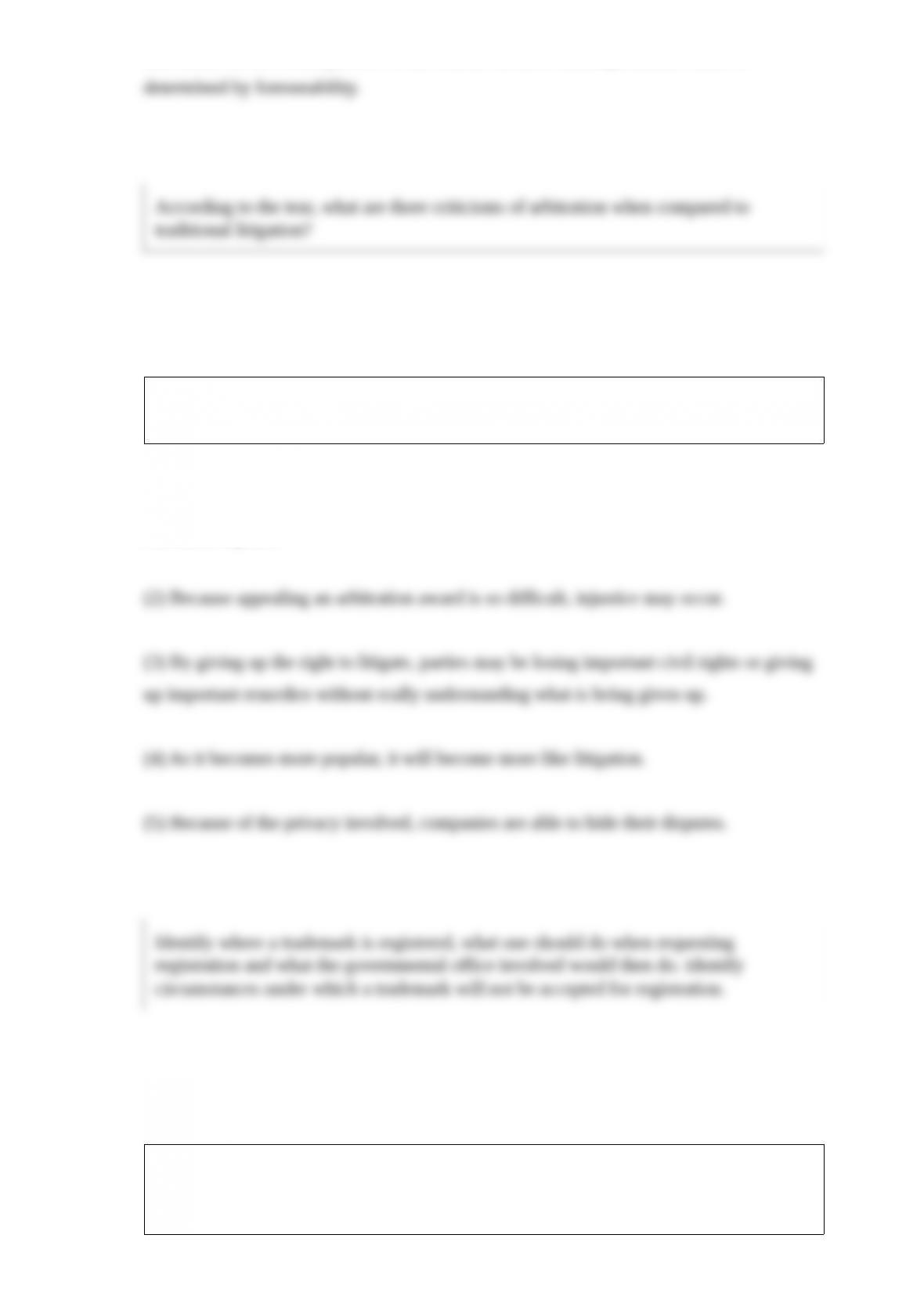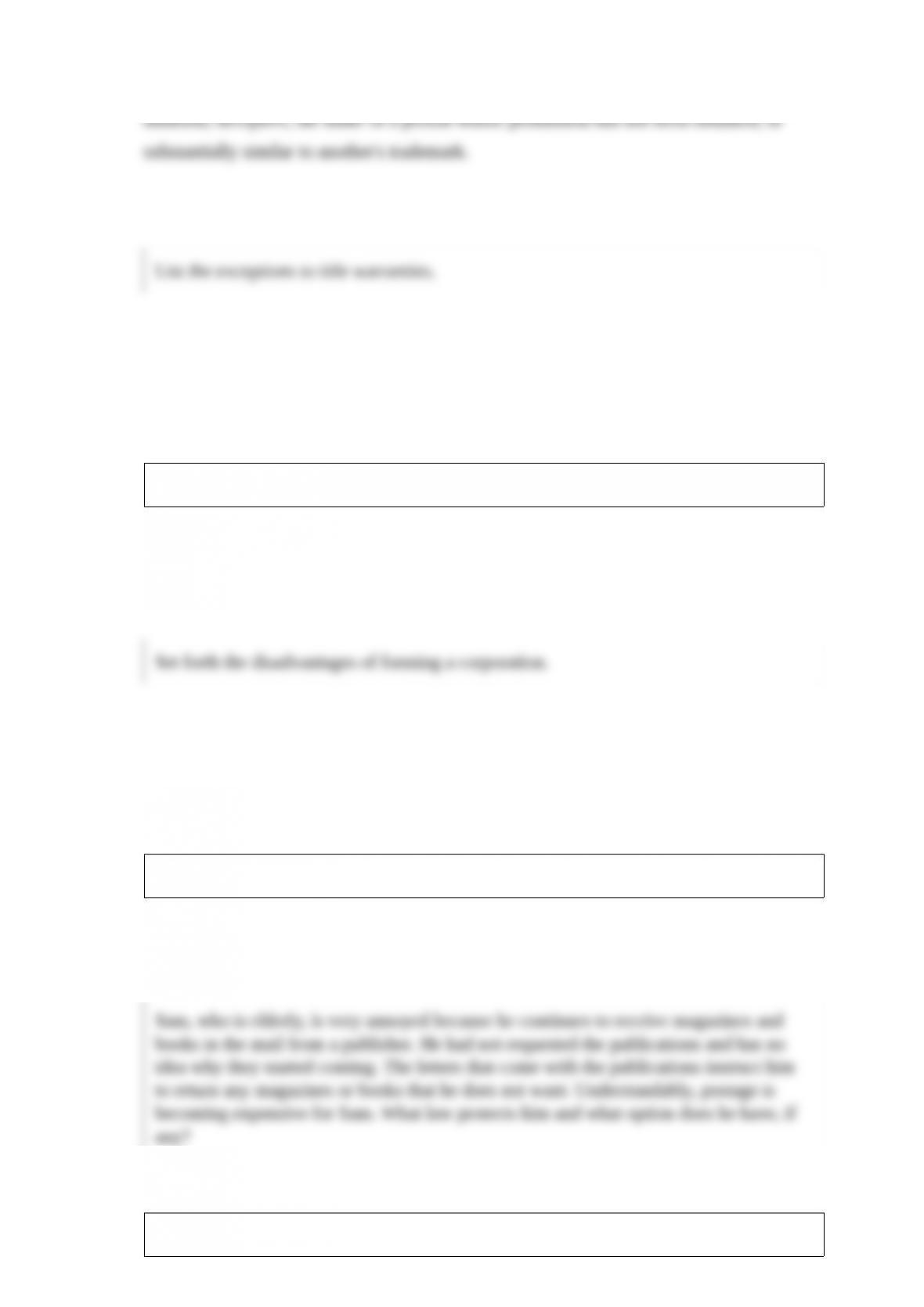the signature requirement for negotiability only if the instrument is in an amount of
$1,000 or less.
Banking Problems. Constance and Blair are both loan officers at ABC Bank. Constance,
being somewhat dishonest, tells Henry, a customer of the bank who is wealthy and
rarely checks the status of outstanding loans and balances, that she is collecting money
for a local animal shelter. She asks him to sign a pledge that he will contribute $50 to
the animal shelter. In fact, she had him sign a promissory note made out to her for
$5,000, which she later endorsed to Richard. Henry proceeds back to one of his
businesses, a used car dealership. Taylor comes in to purchase a used car. He and Henry
agree that Taylor will purchase a used car for $3,000. Martha also comes in, and she
and Henry agree that she will purchase a used car for $4,000. Both Taylor and Martha
make out promissory notes payable to Henry. At the end of the day, Henry is looking
through the notes and decides that Taylor's was mistakenly made out for $3,000. Henry
mistakenly, but honestly, believed that the deal was for $3,500. Therefore, he changes
the note to reflect that Taylor owed $3,500. Henry, on the other hand, simply did not
like Martha. He decided that $4,000 was not enough for the car. Accordingly, he
changed the note to $4,500. Which of the following is true regarding Taylor's liability to
Henry?
A. Because of the alteration, Taylor is not liable to Henry for any amounts under the
promissory note.
B. Taylor's obligation will be enforced only in the amount of $3,000.
C. Taylor's obligation will be enforced in the amount of $3,500 unless Taylor has a
writing signed by Henry to the effect that the deal was for $3,000. No other evidence
would be allowed.
D. Unless Taylor has a written document from Henry to the effect that the agreement
was for $3,000 only, Taylor and Henry will be legally required to split the remainder
with Taylor being held responsible for $3,250.
E. Unless Taylor either has a written document from Henry showing that the agreement
was for $3,000 or unless he can get Henry to admit that the agreement was for $3,000,
then Taylor will be required to pay $3,500 because the obligation was upon Taylor to




























